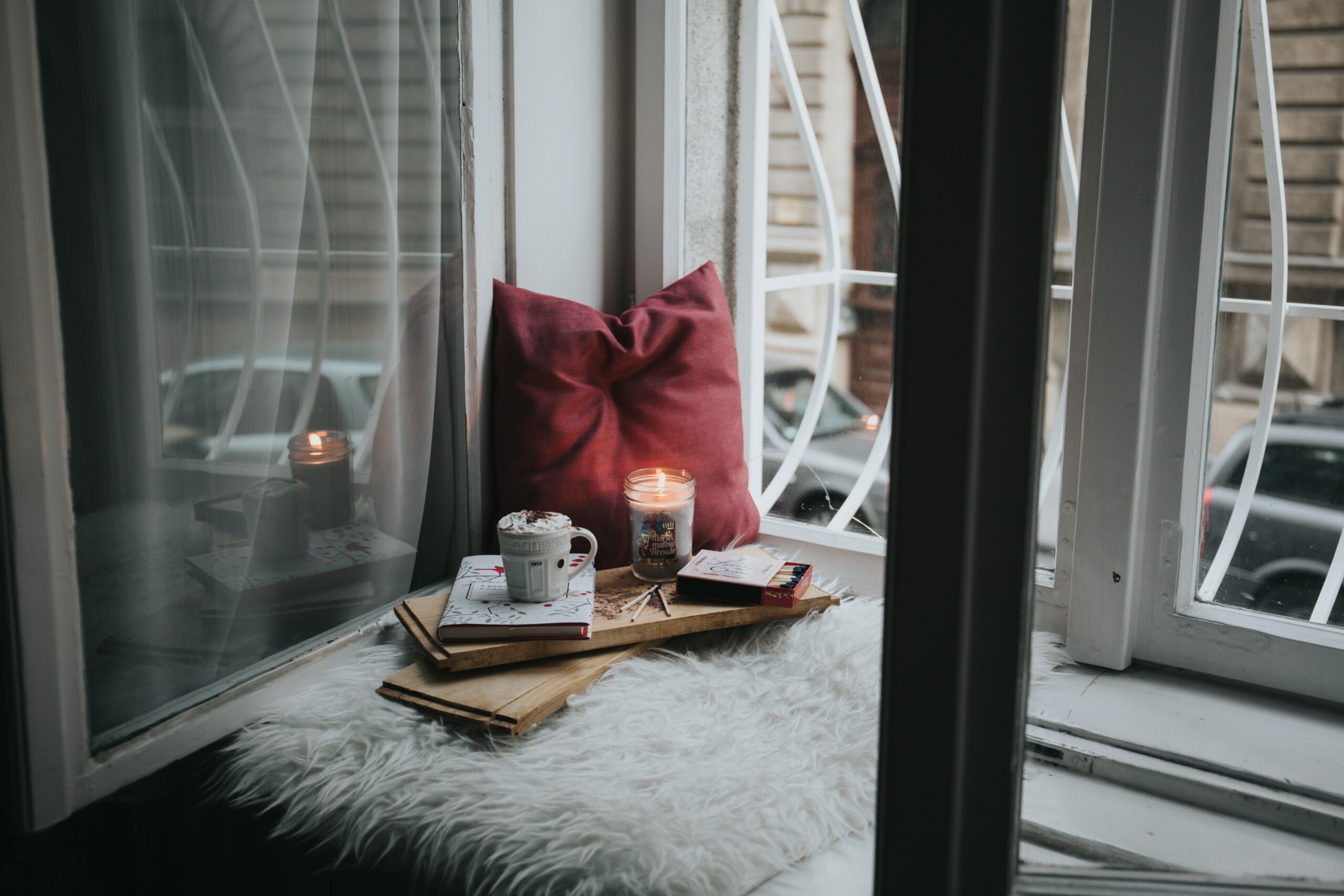How to cope with winter

Photo by Alisa Anton
One of my favourite things to do in the winter is curl up next to the electric fireplace in nice warm comfy clothes, with a hot chocolate and either read or reflect on my day while watching the flames flickering. I love the beauty that winter brings with the soft white snow glistening on the trees, catching snowflakes on my tongue, seeing snowmen in yards and fields, and indulging a bit more in my favourite comfort foods.
At times I have thought my spirit animal must be a bear because I love the idea of hibernating and staying in a nice warm place for the winter and returning to the outdoors in the spring when the weather warms up. I prefer the heat over the cold almost any day.
Over the years, I have learnt about the winter blues, a wave of low emotions which affects about 15% of the population in Canada, during the cold and dark days of winter. There are many days I would rather stay in my dark room, under the sheets where it is warm and comfortable than get up and prepare for the day ahead. I usually love being around others, but during the winter months, I find it challenging to muster up the energy to be around others and at times would prefer to be at home by myself.
Recognizing the impact of these low emotions and seeking support from trained professionals such as my doctor and mental health professionals has supported me in getting through the long winter months without falling into a depressive state.
Through the advice of my family doctor, I take additional vitamin supplements in the winter and ensure I am eating a well-balanced diet (not just my comfort foods) and drinking plenty of water. Other strategies have included setting a timer allowing me to stay in bed for just a little bit longer but then getting up and dressed when the timer goes off.
Vitamin D from the sun is important and many people do not get enough during the winter months due to the shorter amount of daylight. I open the curtains and blinds in the house to let in natural light and do my best to go outside even for a short walk around the block for some fresh air and Vitamin D.
Connection with others and receiving social support are important concepts year-round but can be a challenge in the winter when people are less inclined to go out. Some ideas to combat this are to make plans with a friend to go for a walk around the mall or meet for coffee in person or over the phone. You could also try cooking or eating a meal with a friend or family member on a video call if it is difficult to leave the house, join a support group to connect with others who are going through similar issues as yourself, and make time to do the things you love and enjoy.
Another way to cope with the winter is to be prepared in case of an emergency. It is important to check the weather before leaving the house to ensure you have the right items to bundle up and stay warm in cold temperatures. Layering clothing is great so you can increase or decrease layers depending on the weather. With each birthday that passes by, I worry a little more about slipping and falling and have realized I don’t heal as fast as I used to.
I wear the right footwear to go out and step a little more cautiously on the sidewalk or walking up or down the stairs, and always make sure I have a fully charged cell phone when I leave the house. Every winter I ensure I have an extra blanket, pair of socks and gloves in my car, a water bottle and snack in my purse or backpack when I go out, and I will fill up with gas once I am just below half a tank. I want to make sure I am as prepared as I can be if I were to become stuck in traffic or have to wait for a tow truck, which could be quite a while in unideal conditions.
We also keep a case of bottled water at home and some easy open, ready-to-eat soups just in case of an unlikely power outage. Since the weather can be unpredictable at times and the road conditions unideal for driving on, we also try to keep a few extra grocery items such as pasta and sauce, oatmeal, or extra cans of soup in the pantry so we don’t have to go out when the weather is not ideal.
If you are struggling with mental health and the winter blues, please reach out to your family doctor for support or contact the Distress Centre (a 24-hour crisis line) for additional mental health support at 403-266-4357 (HELP). I wish you all a warm and safe January!
